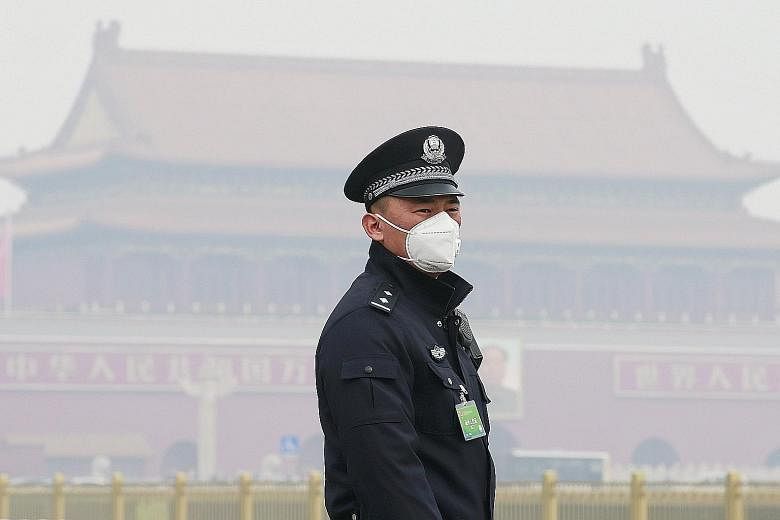WASHINGTON • Air pollution is the deadliest form of pollution and the fourth leading risk factor behind premature deaths worldwide, according to a new study.
The study, jointly conducted by the World Bank and the Institute for Health Metrics and Evaluation, estimated that 5.5 million lives were lost in 2013 to diseases associated with outdoor and household air pollution.
If the fatalities were examined through the lens of "welfare losses" across age groups - an approach commonly used to evaluate the costs and benefits of environmental regulations in a given country context - the aggregate cost of premature deaths was more than US$5 trillion (S$6.7 trillion) worldwide in 2013, the study said.
More than half of that burden fell on China and other developing economies in Asia, the study - titled The Cost Of Air Pollution: Strengthening The Economic Case For Action - stated.
According to the report, more than 90 per cent of the premature deaths attributed to air pollution occurred in developing countries. Compared to children under five in high-income countries, those in lower-income countries were 60 times as likely to die from exposure to bad air, it said.
In East and South Asia, welfare losses related to air pollution were the equivalent of about 7.5 per cent of gross domestic product (GDP).
-
60x
Compared to children under five in high-income countries, those in lower-income countries are 60 times as likely to die from exposure to bad air.
-
7.5%
Welfare losses related to air pollution are the equivalent of about 7.5 per cent of gross domestic product in East and South Asia.
-
1%
Annual labour income losses cost the equivalent of almost 1 per cent (0.83 per cent) of gross domestic product in South Asia.
In terms of lost labour income, the deaths caused by air pollution cost the global economy about US$225 billion in lost labour income in 2013, said the report.
While the most-afflicted segments of the population were young children and the elderly, the study said premature deaths also resulted in lost labour income for working-age men and women.
The report found that annual labour income losses cost the equivalent of almost 1 per cent (0.83 per cent) of GDP in South Asia. In East Asia and the Pacific, where the population is ageing, labour income losses represented 0.25 per cent of GDP.
Air pollution increases a person's risk of illnesses such as lung cancer, stroke, heart disease and chronic bronchitis, according to the report. The diseases and deaths occurring on account of them carry a rapidly rising economic cost, the study said.
The study was conducted with a view to estimate the costs of premature deaths related to air pollution, to strengthen the case for action and facilitate decision-making in the context of scarce resources.
"Air pollution is a challenge that threatens basic human welfare, damages natural and physical capital, and constrains economic growth," said Ms Laura Tuck, vice-president for Sustainable Development at the World Bank, in a press statement.
"We hope this study will translate the cost of premature deaths into an economic language that resonates with policymakers so that more resources will be devoted to improving air quality."

